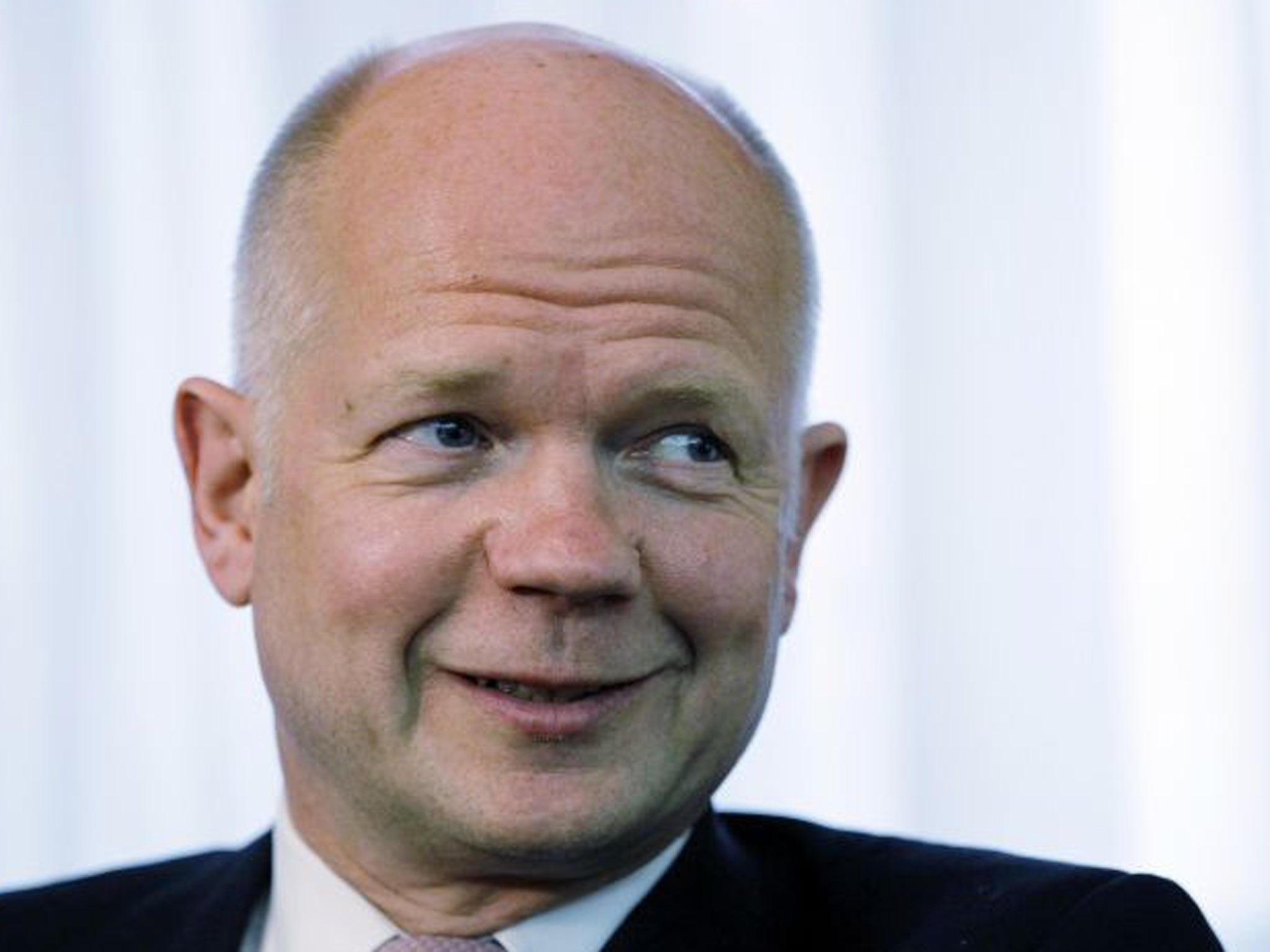Britain unsure whether to arm Syrian rebels, says William Hague

Your support helps us to tell the story
From reproductive rights to climate change to Big Tech, The Independent is on the ground when the story is developing. Whether it's investigating the financials of Elon Musk's pro-Trump PAC or producing our latest documentary, 'The A Word', which shines a light on the American women fighting for reproductive rights, we know how important it is to parse out the facts from the messaging.
At such a critical moment in US history, we need reporters on the ground. Your donation allows us to keep sending journalists to speak to both sides of the story.
The Independent is trusted by Americans across the entire political spectrum. And unlike many other quality news outlets, we choose not to lock Americans out of our reporting and analysis with paywalls. We believe quality journalism should be available to everyone, paid for by those who can afford it.
Your support makes all the difference.Britain is unsure about whether to arm the rebel groups in Syria and will only decide after a peace conference, which the international community is hoping to host in Geneva in the coming weeks.
The European Union last week lifted its embargo on the transfer of weapons to Syria, opening up the possibility of arms being given to those fighting the Syrian regime. The UK, which along with France was one of the keenest to see the embargo lifted, has indicated that it is willing to see if a political solution can first be found.
Speaking to Germany’s Frankfurter Allgemeine Zeitung, the Foreign Secretary William Hague, said: “Our priority is to get the regime in Damascus and the opposition to the negotiating table in Geneva. A decision to deliver lethal weapons will depend on the course of these negotiations, as well as by the attitude of other countries. Because we will only supply weapons along with others, in accordance with international law and under carefully controlled conditions.”
The conference, which has the rare backing of both the US and Russia, is already riven with problems. No date has yet been set for the summit and while the Syrian government has said it will attend, President Bashar al-Assad has publicly stated that he does not expect it to deliver peace. Meanwhile, the Syrian National Coalition – the political group that represents most rebel factions – has said that it will not go to Geneva while fighters from the Lebanese militant group Hezbollah continue to fight on the government side.
Hezbollah has played a significant role in assisting regular Syrian troops, and is thought to be tipping the balance of the conflict back in favour of the administration. In recent weeks Hezbollah fighters have been instrumental in the bloody siege of Qusair – a rebel held town – which is seen as the gateway to the Syrian coast.
Reports from Qusair suggest that the situation is growing increasingly desperate. As many as 300 seriously injured people are thought to be trapped in the town. The International Committee of the Red Cross said at the weekend that food, water and medical supplies were all in desperately short supply.
Until the idea of the Geneva conference was floated, the international community was hamstrung about what to do in Syria. The West has largely backed the rebels, but Moscow has been a steadfast supporter of the Assad regime.
And with no date yet set for the Geneva conference, the divisions threaten to surface once more. Earlier today Russian state media quoted the country’s deputy foreign minister, who blamed the US for not doing enough to persuade opposition representatives to attend the Geneva meeting. “In our view, the United States is definitely not working hard enough in terms of putting influence on Syrian opposition groups so that [they] will come to the international conference,” Sergei Ryabkov was quoted as saying.
Britain knows that arming rebel groups is a dangerous strategy. Some of the most disciplined factions, such as the Jabhat al-Nusra group, have aligned themselves with al-Qa'ida and an increasinging number of Islamist fundamentalists are entering the war. British policy makers will be concerned that any decision to arm rebel groups will see weapons falling into the hands of some of the more unsavoury elements of the conflict.
Join our commenting forum
Join thought-provoking conversations, follow other Independent readers and see their replies
Comments